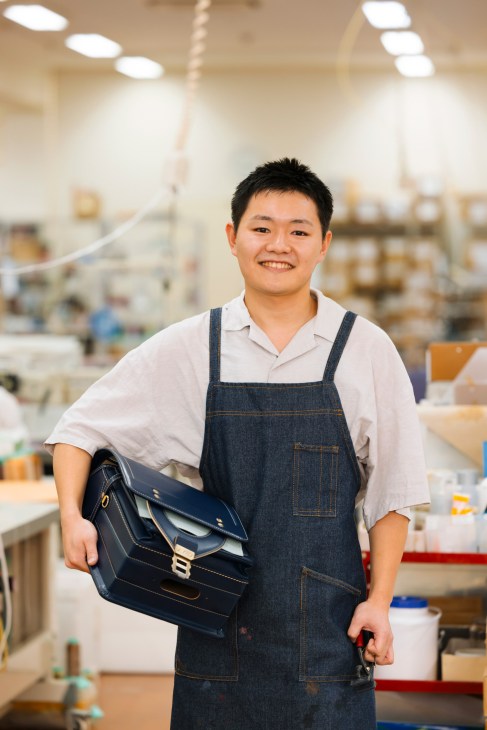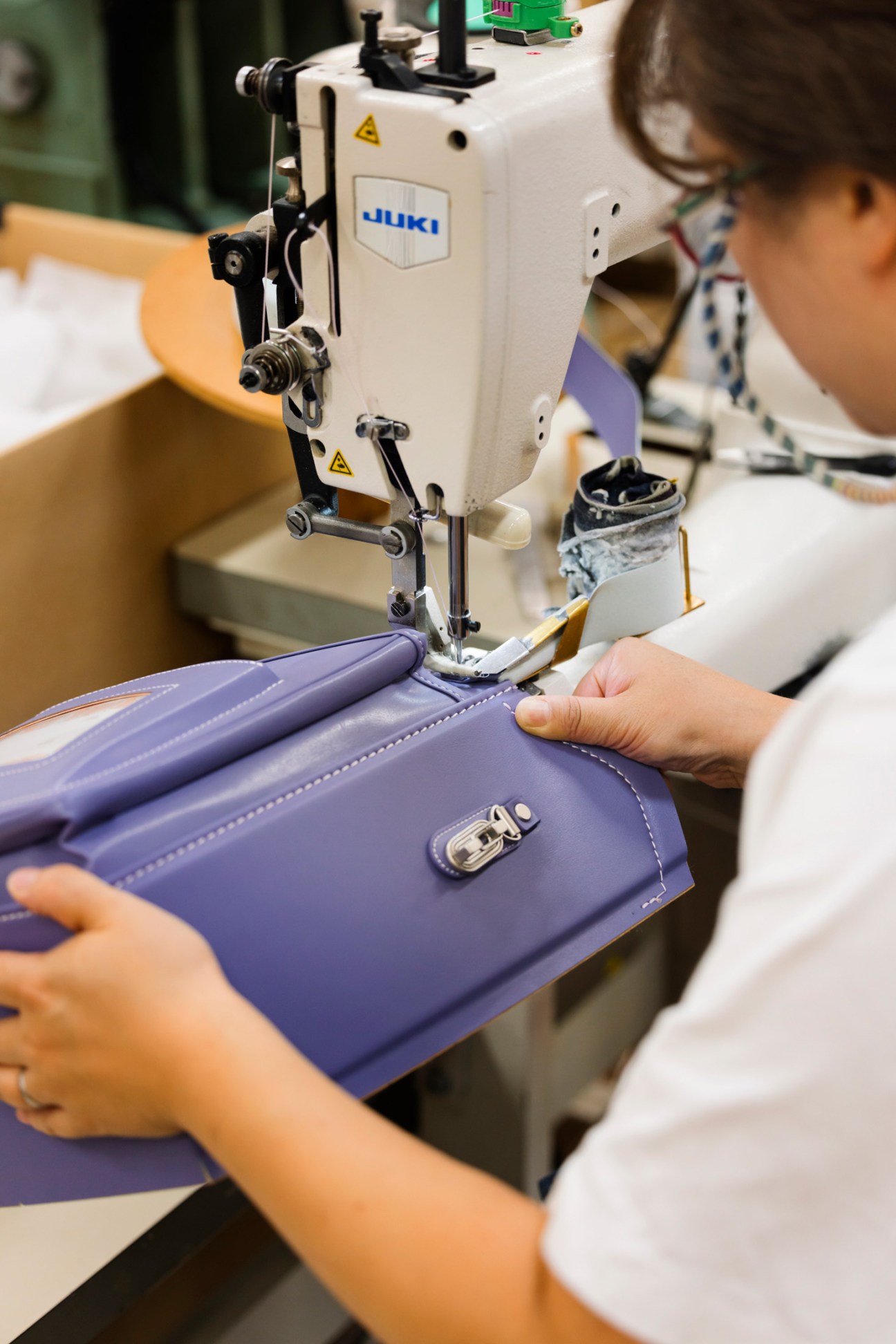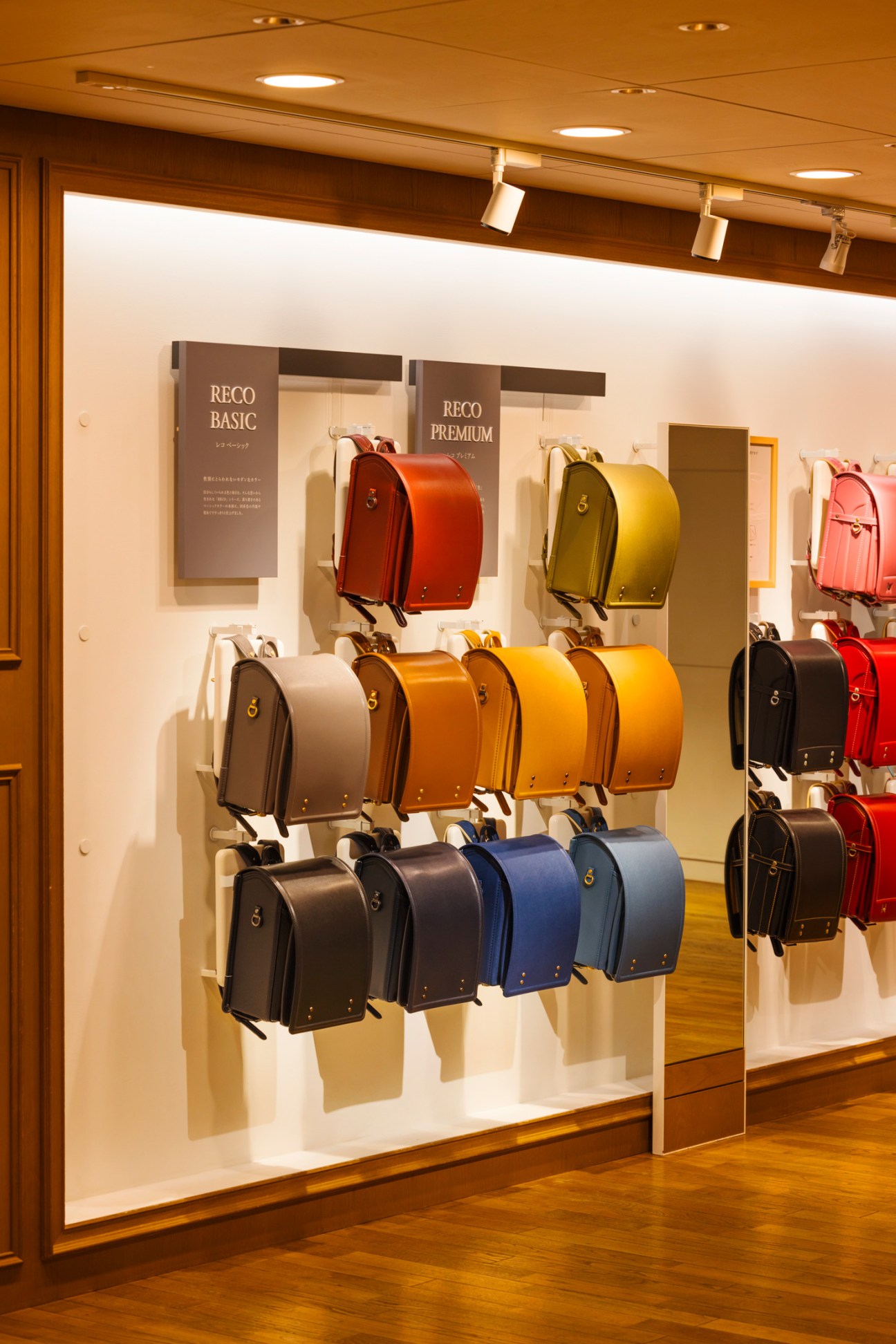Heritage businesses
Made by a curated selection of Tokyo’s heritage businesses, the Edo Tokyo Kirari project’s artisanal wares leave a lasting impression.
Tsuchiya Kaban
The Adachi-based maker’s randoseru are timeless designs admired by all ages
Bags
Founded by craftsman Kunio Tsuchiya in 1965, Tsuchiya Kaban has grown from a two-person operation into one of Tokyo’s leading leather bag brands. The creation of long-lasting products shapes every process, from design and production to maintenance and repairs.

Signature leather randoseru have been part of the Tsuchiya Kaban lineup since day one. The popular box-shaped bags can be seen at primary schools across Japan; the clean design is complemented by robust construction methods that meet the rigours of daily school life.
Each bag is the result of a process that requires 150 pieces and 300 steps. “Some craftspeople may aspire to do everything on their own but working as a team means that each bag is viewed by many different people, allowing us to achieve higher quality,” says 28-year-old craftsman Haruki Hayashi.


The success of the children’s randoseru has inspired an adult version: a stylish leather backpack fit for the boardroom. The emphasis on quality extends to the details, born of Tsuchiya Kaban’s desire to create bags that will be treasured for a long time by owners young and old.
Fans
Ibasen has been producing round uchiwa fans since about 1700 and has a history that stretches back even further. Made from washi paper and bamboo, the simple uchiwa and more intricate folding fans provide relief from the heat during the summer months. By the late Edo period, they had also become canvases for prints of ukiyo-e paintings by Utagawa Hiroshige and other renowned artists. The fans were functional works of art, growing in popularity and becoming part of the fabric of daily life.

Centuries later, Ibasen continues to produce and sell Edo-style fans made with those same traditional techniques. In contrast to their Kyoto-made counterparts, the frame of each Ibasen fan is made from a single piece of bamboo, which is split and fixed between layers of paper. The surface is adorned with bold designs featuring intricate patterns such as Edo komon, echoing the aesthetic of old Tokyo. Folding fans are constructed with these creative expressions in mind, using a reduced number of bamboo bones to ensure that the full design can be seen easily.




